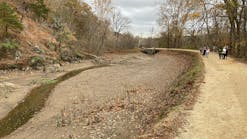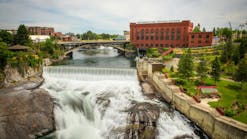A group formed to recommend special storm water-control rules for the Lockwood Folly River watershed in North Carolina is nearing the hard part of its task, and already concerns are being raised over what members might do.
According to a report in the Sun News, people are wondering aloud whether the rules proposed by the Lockwood Folly Watershed Roundtable will make homes more expensive by making development costlier, will set protections in place that are unlikely to be maintained or will force the county to dedicate staff and money as the overseer.
The roundtable was created last year as a first-of-its-kind effort in North Carolina to propose special storm water control regulations for an entire watershed.
The Lockwood Folly River rises in central Brunswick County and empties into the Intracoastal Waterway between Oak Island and Holden Beach.
The river, which flows by the Winding River subdivision and Varnamtown, was once a fertile shellfishing area. But increased pollutants from burgeoning development has led to 55% of the former shellfishing areas being closed.
County officials are looking for a way to restore the river to its historic shellfishing use and hope the rules proposed by the roundtable will do that.
The roundtable has scheduled public input meetings for early to mid-August and hopes to finalize the rules it will recommend to county commissioners in late August.
At a recent meeting, the group finalized 10 strategies it wants to target with the rules it will propose and discussed ways those may be met. Included in the strategies are things such as:
+Directing sewer lines to communities with failing septic tanks and areas of high density development.
+Encouraging low-impact development, where storm water is dealt with on a lot-by-lot basis rather than for the community as a whole.
+Implementing a Living Shorelines program where the state would help property owners create marshes and plant natural vegetation to absorb pollutants before they get into waterways.
The strategies will also try to encourage redeveloping some existing storm water control systems that aren't working and examine the possibilities for acquiring property that is deemed to be particularly valuable in protecting the river's water quality.
Source: EPA






